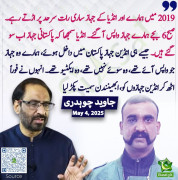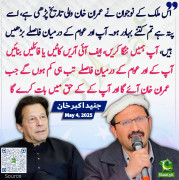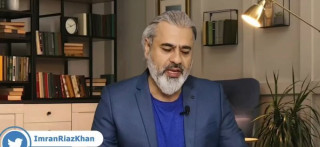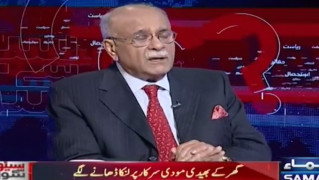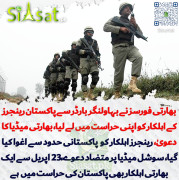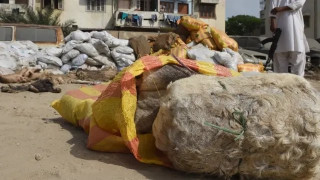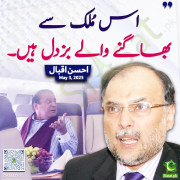Muhammad Tauseef A. Bajwa
Senator (1k+ posts)
Million dollar mosques surrounded by hungry Muslims
April 16, 2011
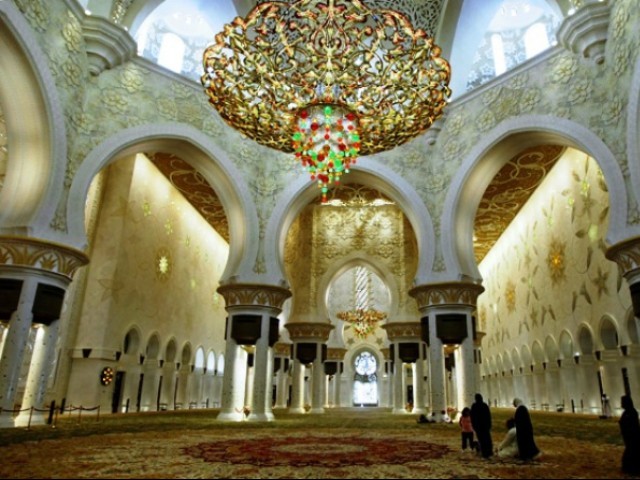
So much is spent on the building of such a grand mosque but not on the worshippers inside of it.
I came across a BBC article about the grandest mosque in Abu Dhabi.
Built in 2007, the Sheikh Zayed Grand Mosque can accommodate up to 40,000 worshippers under its 57 domes. The breathtaking architecture is the result of a deliberate attempt to represent the many cultures within the Islamic world by incorporating Arab, Mughal, Moorish, and Turkish designs. The interior boasts the largest chandelier and hand-woven carpet in the world. Beautiful? Absolutely. Worth it? Not so sure.
In a region where weve recently seen people take to the streets due to economic, financial, and social hardships, it makes me a little uncomfortable that such a structure should exist and a religious structure, at that. One of the tenets of Islam is Zakat, or charity. Every Muslim is required to give 2.5 per cent of his/her annual savings to charity every year, assuming such a donation would not put the individual in financial hardship.
Theres a level of irony there when so much would be spent on the building of a grand mosque but not on the worshippers inside of it.
Abu Dhabi is not the only instance theres been such a disconnect from what we need and what weve chosen. The same could be said about the giant clock built in Mecca across from the Holy Kaaba last year. The $800 million project boasts a clock that rivals Big Ben. Yet, if you speak to returning Hajjis, complaints about cleanliness and availability of facilities were common. No one was complaining about not knowing the time. The AlSaleh mosque in Yemen, built in 2008, cost $60 million to build, when approximately 40 per cent of the population lives below the poverty line.
The misuse of funds across the Muslim world is shocking when you take into account the unequal access to education, jobs, and basic healthcare within the region. Kuwaits GDP per capita is $54,152, compared to Jordans $3,466. The UAE has an adult literacy rate of 90 per cent, whereas half of Pakistans adult population is illiterate. The infant mortality rate of Qatar is eight per 1,000 live births, and Afghanistans is 147 per 1,000 live births. The list goes on and on.
I understand that it isnt practical to expect constant handouts from others and a government should be expected to take care of its own. But one has to wonder if there cant be more social and economic cooperation between regional neighbors, at least.
Clearly, there are some who have more than what is needed for their population. Why rely on the West, which always seems to raise about a thousand other issues, when you could be relying on those closer to you? It would potentially give the region greater autonomy.
Its not an easy solution. I dont deny that. And I may be oversimplifying it. But the idea that such an opulent mosque can exist when so many who could be praying there are affected by hunger and poverty, seems a little wrong to me. Though it may be absolutely necessary for a religious structure to be that big, I wonder if some humility couldnt be built into it either.
The views expressed by the writer and the reader comments do not necessarily reflect the views and policies of The Express Tribune.
April 16, 2011

So much is spent on the building of such a grand mosque but not on the worshippers inside of it.
I came across a BBC article about the grandest mosque in Abu Dhabi.
Built in 2007, the Sheikh Zayed Grand Mosque can accommodate up to 40,000 worshippers under its 57 domes. The breathtaking architecture is the result of a deliberate attempt to represent the many cultures within the Islamic world by incorporating Arab, Mughal, Moorish, and Turkish designs. The interior boasts the largest chandelier and hand-woven carpet in the world. Beautiful? Absolutely. Worth it? Not so sure.
In a region where weve recently seen people take to the streets due to economic, financial, and social hardships, it makes me a little uncomfortable that such a structure should exist and a religious structure, at that. One of the tenets of Islam is Zakat, or charity. Every Muslim is required to give 2.5 per cent of his/her annual savings to charity every year, assuming such a donation would not put the individual in financial hardship.
Theres a level of irony there when so much would be spent on the building of a grand mosque but not on the worshippers inside of it.
Abu Dhabi is not the only instance theres been such a disconnect from what we need and what weve chosen. The same could be said about the giant clock built in Mecca across from the Holy Kaaba last year. The $800 million project boasts a clock that rivals Big Ben. Yet, if you speak to returning Hajjis, complaints about cleanliness and availability of facilities were common. No one was complaining about not knowing the time. The AlSaleh mosque in Yemen, built in 2008, cost $60 million to build, when approximately 40 per cent of the population lives below the poverty line.
The misuse of funds across the Muslim world is shocking when you take into account the unequal access to education, jobs, and basic healthcare within the region. Kuwaits GDP per capita is $54,152, compared to Jordans $3,466. The UAE has an adult literacy rate of 90 per cent, whereas half of Pakistans adult population is illiterate. The infant mortality rate of Qatar is eight per 1,000 live births, and Afghanistans is 147 per 1,000 live births. The list goes on and on.
I understand that it isnt practical to expect constant handouts from others and a government should be expected to take care of its own. But one has to wonder if there cant be more social and economic cooperation between regional neighbors, at least.
Clearly, there are some who have more than what is needed for their population. Why rely on the West, which always seems to raise about a thousand other issues, when you could be relying on those closer to you? It would potentially give the region greater autonomy.
Its not an easy solution. I dont deny that. And I may be oversimplifying it. But the idea that such an opulent mosque can exist when so many who could be praying there are affected by hunger and poverty, seems a little wrong to me. Though it may be absolutely necessary for a religious structure to be that big, I wonder if some humility couldnt be built into it either.
The views expressed by the writer and the reader comments do not necessarily reflect the views and policies of The Express Tribune.


